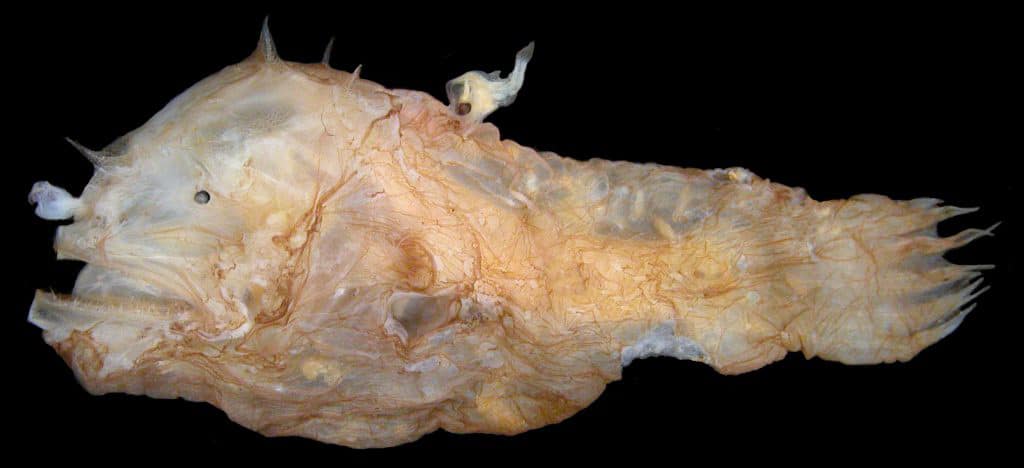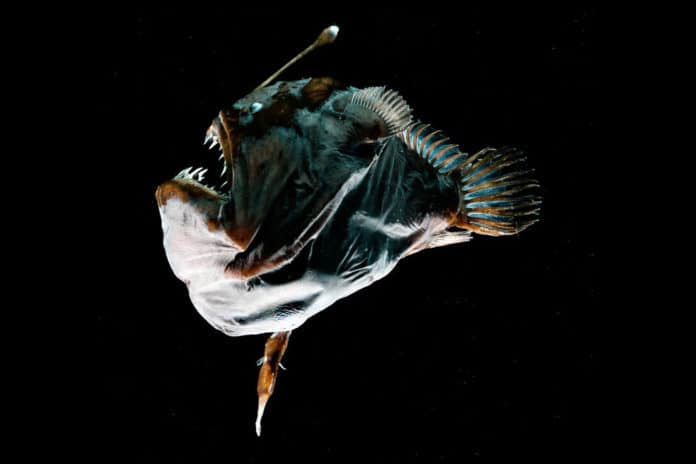Deep-sea anglerfishes look quite spectacular – and a little scary. Their mating behavior is also unusual and unique in the animal kingdom. In the most extreme cases, deep-sea anglerfish females may be more than 60 times the length and about half-a-million times as heavy as the males. Tiny dwarfed males become temporarily or permanently attached to relatively gigantic females, fuse their tissues, and then establish a common blood circulation.
The male becomes entirely dependent on the female for nutrient supply, like a developing fetus in the womb of a mother or a donated organ in a transplant patient – a process called ‘sexual parasitism’. In return, the male delivers sperm to fertilize the eggs. This form of sexual parasitism is unique in the animal kingdom.
Now, researchers from the Max Planck Institute of Immunobiology and Epigenetics in Germany and the University of Washington have investigated how anglerfishes so readily accept their male mates, overcome tissue-rejection and perform such an intense union. The findings estimated that the immune system of anglerfishes was very unusual among the tens of thousands of vertebrate species.

During their study, the researcher team studied the genomes of different anglerfish species, including the structure of molecules, called major histocompatibility (MHC) antigens. These molecules are found at the surface of the body’s cells and signal an alarm to the immune system when the cells are infected by a virus or a bacteria.
The MHC molecules are extremely variable, so much so that it is hard to find identical or near-identical forms in any two individuals of a species. This feature helps to reach the root of the tissue-matching problem that makes human organ and bone marrow transplantation rife with complications.
Researchers found that anglerfishes that utilize permanent attachment largely lack the genes that encode these MHC molecules as if they had done away with immune recognition in favor of tissue fusion. This inhibited the function of killer T cells, which normally eliminate infected cells or attack foreign tissues during the organ rejection process. Further analysis also indicated that antibodies, another powerful weapon in the arsenal of immune defense, are missing in some anglerfish species.
To effectively be able to stay alive, anglerfish have many improved innate facilities to defend themselves against infections. The study thus shows that vertebrates can survive without the adaptive immune response previously considered to be irreplaceable.
The discovery of this previously unique immune system could open up new ways of treating patients with an immune deficiency.
Journal Reference:
- The immunogenetics of sexual parasitism. DOI: 10.1126/science.aaz9445
